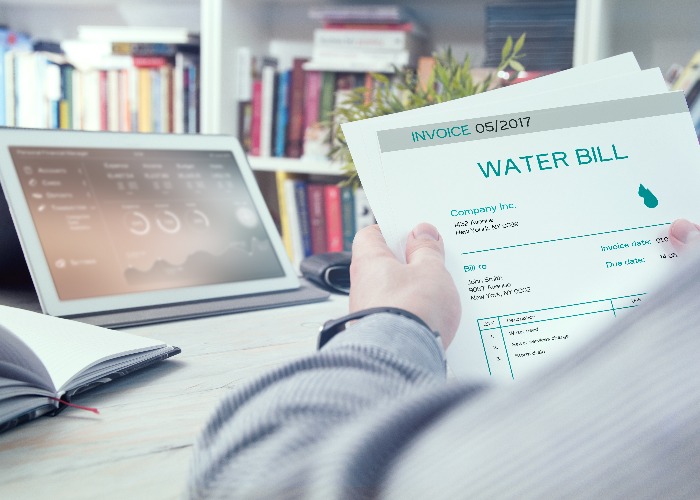Water bill debt: support schemes and help if you’re struggling to pay your utility bills

Struggling to pay your water bill? There is help available if you’re having money problems.
Money worries are playing havoc with people’s mental health at the moment.
A study by My Online Therapy suggests that around two-thirds of people have seen their mental health take a knock due to Covid-19, with a third of those as a direct result of money concerns.
It’s entirely understandable. An awful lot of Brits are faced with the prospect of reduced incomes, so meeting their monthly bills becomes more of a stretch than usual.
One of those tricky bills is of course the water bill. And unlike other utility bills, with water it’s not like you can shop around for a new deal with a rival supplier.
You are trapped by your postcode into remaining with your local supplier, come what may.
Thankfully if you are having issues with your water bills, there are plenty of support schemes both from individual suppliers and the industry as a whole which you can take advantage of.
Yorkshire Water
Yorkshire Water has this week launched a new tariff designed to help people with water arrears to clear their debts more quickly.
Customers on the Direct Support tariff will see the supplier match any contributions they make towards their arrears, meaning they get paid off in half the time.
The firm reckons that around 10,000 people will receive support from the scheme this year, with an average contribution of £195 per year from Yorkshire Water towards those outstanding bills.
What’s more, there’s no time limit to the help ‒ once you’re on the tariff, you’ll continue receiving Yorkshire Water contributions until the debts have been cleared entirely.
It’s just one example of the measures offered by some suppliers to provide customers with a bit of a helping hand if they are in financial bother.
Social tariffs
Social tariffs are those provided by water suppliers which are designed for people who are on a low income or who may be receiving certain benefits.
It’s worth noting that each of these schemes will be slightly different, depending on the supplier in question.
Affinity Water for example, which supplies parts of London and the Home Counties, offers a Lift tariff for those with a household income of less than £16,105 or who are receiving certain income benefits like Universal Credit and JSA. It caps bills at £97.90.
In contrast United Utilities, which supplies areas in the North West, has a collection of social tariffs, such as Help to Pay, which is for those on Pension Credit, and Back on Track, which is for those who are either in arrears from last year or can demonstrate a change in their financial circumstances as a result of Covid-19.
The Consumer Council for Water has a round-up of the various social tariffs currently on offer on its website which is worth a look.

WaterSure
WaterSure is a scheme offered across England and is available to those on a water meter.
Crucially you need to be on some form of income-based benefit, like Universal Credit, but also have what’s called a ‘high essential use of water’.
Ultimately this comes down to one of two things. The first is a medical condition which means you or someone in your home needs to use a lot of water. Examples could be Crohn’s disease or incontinence.
Alternatively you might have three or more children under the age of 19 living in the house, and all in full-time education.
Having a big garden that needs watering doesn’t count as an essential need for using more water, even if you do have lovely petunias.
If you are approved for the scheme, then the amount you pay per quarter will be capped. This cap will vary based on your region and your supplier, but it should mean you don’t pay more than the average for your area.
When applying, you will need to provide proof of your position, such as a doctor’s note explaining why you require a higher use of water.
Is there a trust fund?
Some suppliers have set up trust or assistance funds to provide help to those struggling with their bills.
There’s the Severn Trent Trust Fund for example, which local residents can directly apply to for a grant.
Thames Water has a customer assistance fund too, which works rather like that new Yorkshire Water tariff in that the money you pay towards your debts are matched, pound for pound, by the supplier.
Water Direct
Water Direct is a scheme run by the Department for Work & Pensions, and is open to those on certain benefits. It means the money for your water bills is deducted directly from those benefits.
While it’s run by the DWP, you need to apply directly with your individual supplier in order to join the scheme.
Cut your water bills with small changes
Assuming you're billed based on your usage, then it's worth looking at what you can do to cut your bills.
You needn't make drastic steps: simple changes could have a dramatic impact.
Just take a look at the following table, which uses data compiled by the firm Harvey Water Softeners, which shows how easy it is to cut your costs by £30 a year.
|
Activity |
Average Use |
Reduce To |
Average Saving Per Person Per Year |
|
Taking a bath |
3 per week |
2 per week |
£5.58 |
|
Having a shower |
7 per week |
6 per week |
£2.59 |
|
Using a washing machine |
4 per week |
3 per week |
£7.57 |
|
Using a dishwasher |
7 per week |
3.5 per week |
£7.39 |
|
Flushing a toilet |
35 per week |
28 per week |
£4.57 |
|
Boiling a kettle |
14 per week |
7 per week |
£0.76 |
|
|
|
TOTAL |
£28.47 |
Comments
Be the first to comment
Do you want to comment on this article? You need to be signed in for this feature